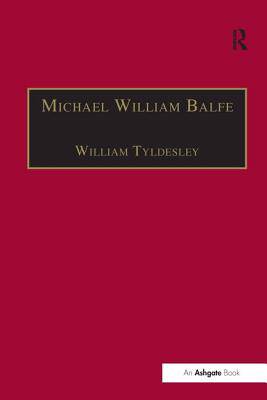
Door een staking bij bpost kan je online bestelling op dit moment iets langer onderweg zijn dan voorzien. Dringend iets nodig? Onze winkels ontvangen jou met open armen!
- Afhalen na 1 uur in een winkel met voorraad
- Gratis thuislevering in België vanaf € 30
- Ruim aanbod met 7 miljoen producten
Door een staking bij bpost kan je online bestelling op dit moment iets langer onderweg zijn dan voorzien. Dringend iets nodig? Onze winkels ontvangen jou met open armen!
- Afhalen na 1 uur in een winkel met voorraad
- Gratis thuislevering in België vanaf € 30
- Ruim aanbod met 7 miljoen producten
Zoeken
€ 182,45
+ 364 punten
Uitvoering
Omschrijving
Without doubt, Michael William Balfe (1808-1870) was the most successful composer of English opera in the mid nineteenth century. During his lifetime he enjoyed an international reputation and worked with some of the leading singers of the time, including Jenny Lind, Malibran and Grisi. Drawing on previously unused source materials such as letters, legal documents and playbills, this biography of Balfe and in-depth study of his English operas overturns many of the previously accepted 'facts' of the composer's lifestyle. Using London as his base, Dublin-born Balfe spent long periods in Paris and travelled widely in Europe. William Tyldesley discusses the continental influences evident in Balfe's operas and offers new suggestions as to the draw that Paris held for the composer. Far from leading a fairly prosperous and unexceptional life, Balfe is shown to have found himself in financial straits on more than one occasion, and to have employed possibly unethical means of extracting himself from them. Those wishing to perform Balfe's works or to do further research into them, will find Tyldesley's re-examination of the composer a necessary first port of call.
Specificaties
Betrokkenen
- Auteur(s):
- Uitgeverij:
Inhoud
- Aantal bladzijden:
- 280
- Taal:
- Engels
- Reeks:
Eigenschappen
- Productcode (EAN):
- 9780754605584
- Verschijningsdatum:
- 4/07/2003
- Uitvoering:
- Hardcover
- Formaat:
- Genaaid
- Afmetingen:
- 152 mm x 229 mm
- Gewicht:
- 565 g

Alleen bij Standaard Boekhandel
+ 364 punten op je klantenkaart van Standaard Boekhandel
Beoordelingen
We publiceren alleen reviews die voldoen aan de voorwaarden voor reviews. Bekijk onze voorwaarden voor reviews.











